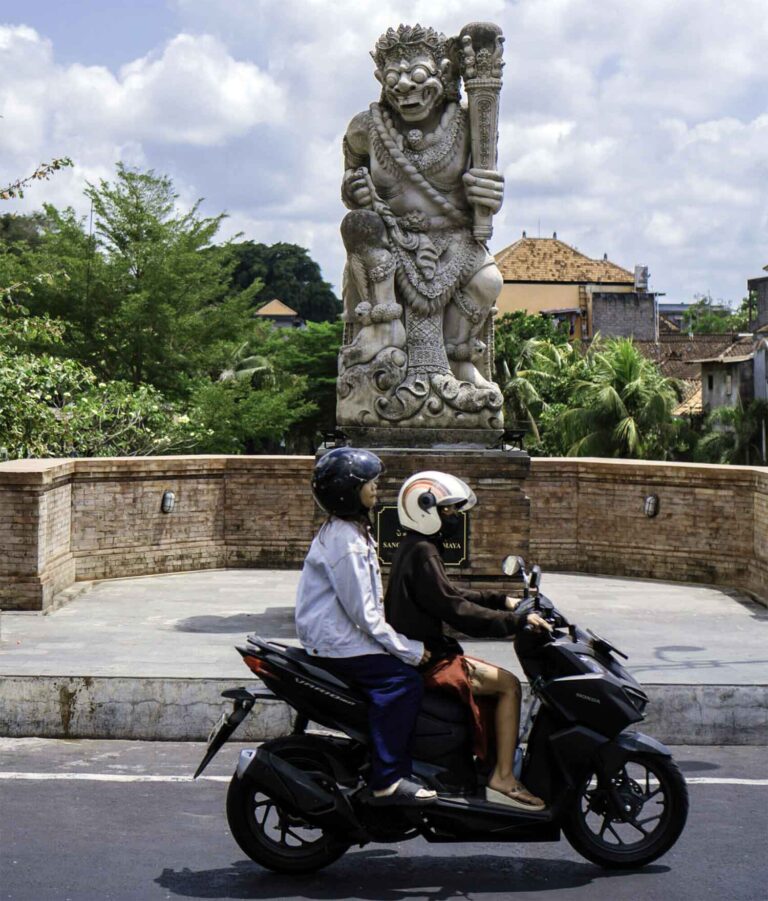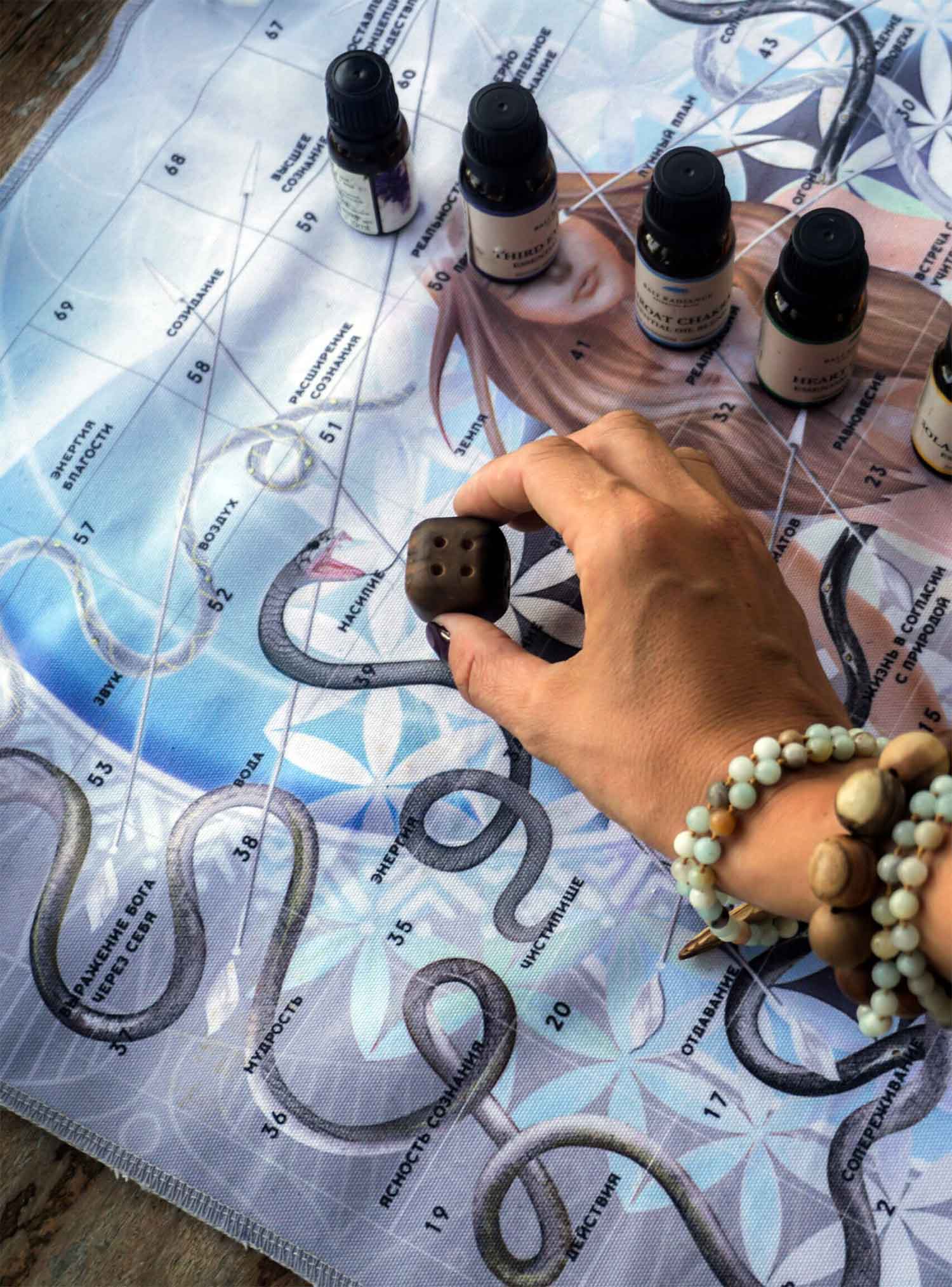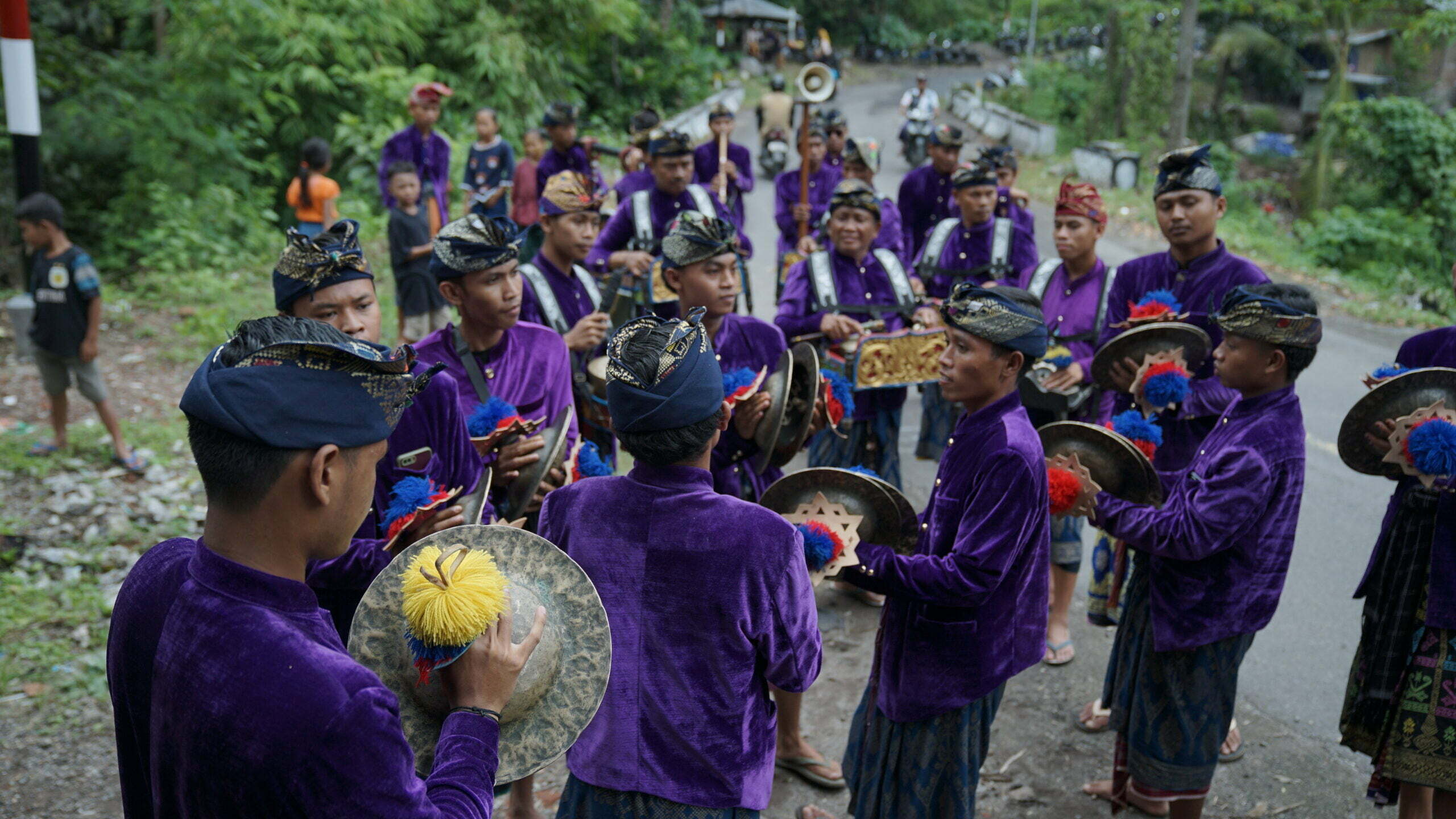Balinese culture and its unique philosophy
When we think of Bali, images of pristine beaches, lush rice terraces, and vibrant traditional ceremonies often come to mind. But beneath its breathtaking landscapes lies a unique cultural tapestry that sets Bali apart from other destinations.
At the heart of Balinese culture is a philosophy known as Tri Hita Karana, which governs the way of life for the people on this enchanting island. Balinese culture is deeply rooted in traditional agriculture and spirituality.
For centuries, the Balinese have relied on their fertile land for sustenance, practicing sustainable farming methods that have shaped their way of life. This close connection with nature has fostered a deep appreciation for the environment and a harmonious relationship with it.
Despite the rapid rise of Balinese tourism in recent decades, the essence of Balinese society remains intact. The Balinese people’s resilience and commitment to preserving their customs and traditions have allowed them to adapt to an evolving world while staying true to their roots.
They take immense pride in upholding their unique cultural practices and rituals, which form an integral part of daily life. At its core, Tri Hita Karana encapsulates the Balinese philosophy that emphasizes achieving happiness and well-being through balance in three realms: harmony with the gods (Parhyangan), harmony with nature (Pawongan), and harmony among people (Palemahan).
This holistic approach guides every aspect of Balinese society – from religious ceremonies held in ornate temples to community-driven initiatives aimed at conserving natural resources. The impact of Tri Hita Karana on contemporary Balinese culture cannot be overstated.
It serves as a guiding principle for individuals striving for inner peace as well as communities seeking sustainable development. In a rapidly changing world where modernization poses challenges to traditional values, adapting Tri Hita Karana becomes crucial in maintaining cultural preservation while also nurturing progress.
What is Tri Hita Karana
Tri Hita Karana is a unique philosophy deeply rooted within the Balinese culture. It encompasses the belief that true prosperity and happiness can only be achieved through harmony with three fundamental aspects: Parhyangan, Pawongan, and Palemahan.
These three components are interconnected and play a vital role in shaping the lives of the Balinese people. Firstly, let’s delve into Parhyangan, which focuses on achieving harmony with the Gods.
The Balinese, known for their strong spirituality, believe that maintaining a harmonious relationship with the divine is crucial for personal and collective well-being. This aspect of Tri Hita Karana impacts various aspects of Balinese life, from daily rituals to grand ceremonies and festivals.
The Balinese are deeply rooted in their beliefs and display unwavering devotion to their gods through elaborate offerings, prayers, and temple rituals. This cultural heritage is not only a form of religious expression but also serves as a means to preserve their unique identity amidst globalization.
Moving on to Pawongan, which emphasizes harmony with nature – an integral part of Balinese spirituality. The Balinese have long practiced environmental stewardship Bali as they recognize their interdependence with the natural world.
They believe that all living beings are connected and must coexist peacefully for true prosperity to flourish. Traditional agriculture Bali is one manifestation of this belief system where sustainable farming practices are passed down through generations.
The cultivation of rice fields using ancient techniques reflects not only their customs but also demonstrates their commitment to preserving nature’s delicate balance. Tri Hita Karana serves as a guiding principle for the Balinese in Palemahan or achieving harmony among people.
Strong community bonds lie at the heart of Balinese culture, evident in how they come together during festivals and important life events.
Tri Hita Karana: The Three Causes of Prosperity
Tri Hita Karana is a Balinese philosophy that incorporates three main components, which are believed to be the causes of prosperity in Balinese culture. These three components are Parhyangan, Pawongan, and Palemahan.
Each component plays a vital role in maintaining harmony and balance in the Balinese way of life. Parhyangan, which focuses on harmony with the Gods, holds immense significance in Balinese customs and traditions.
The Balinese have deep-rooted spiritual beliefs and a strong connection to their gods. They believe that by maintaining a harmonious relationship with the gods through rituals, offerings, and temple ceremonies, they can ensure blessings and prosperity for themselves and their communities.
This aspect of Tri Hita Karana impacts every aspect of daily life in Bali, from the grandest festivals to the smallest daily rituals. Pawongan emphasizes harmony with nature and highlights the importance of unity among individuals within society.
The Balinese people have always had a close relationship with nature – it is ingrained in their cultural heritage. They understand that they are an integral part of their natural surroundings and must coexist harmoniously with it.
Traditional agriculture practices in Bali reflect this belief by promoting sustainable farming methods that respect the environment. The concept of Pawongan also encourages strong bonds within communities through mutual support and cooperation.
It is through these connections that the Balinese find strength as they navigate challenges together. Palemahan focuses on harmony among people, emphasizing social relationships and community well-being.
The Balinese place great importance on maintaining harmonious interactions with others around them – family members, neighbors, colleagues – as well as fostering peace within their communities at large. This aspect of Tri Hita Karana is evident in various aspects of Balinese life including social gatherings, traditional ceremonies, and community initiatives aimed at preserving local customs and traditions.
The belief in Tri Hita Karana has helped shape contemporary Balinese culture by providing a framework for cultural preservation and resilience in the face of globalization. Balinese traditions and festivals, such as Galungan and Nyepi, continue to be celebrated with great enthusiasm and devotion.
The Balinese people actively engage in the preservation of their cultural heritage, choosing to adapt rather than abandon their customs. They have successfully incorporated modern elements into their age-old traditions while staying true to the essence of Tri Hita Karana.
Tri Hita Karana is a philosophy deeply ingrained in Balinese spirituality and culture. It encompasses harmony with the Gods, nature, and among people – the three causes believed to bring prosperity.
The impact of Tri Hita Karana can be seen in various aspects of Balinese life, from religious rituals to daily interactions within communities. By upholding this philosophy, the Balinese people have not only preserved their rich cultural heritage but also found happiness and balance amidst contemporary challenges.
The historical and cultural roots
Tri Hita Karana can be traced back to the ancient Balinese civilization, which has thrived on the island of Bali for centuries. The philosophy is deeply ingrained in the daily lives of the Balinese people, shaping their beliefs, rituals, customs, and overall sense of well-being. At its core, Tri Hita Karana reflects the Balinese resilience and their interconnectedness with both their spiritual realm and natural environment.
Balinese philosophy holds that humans must maintain harmony with nature in order to achieve true happiness and prosperity. This belief system stems from a profound respect for the land and its resources, as well as a deep understanding of the interdependence between human beings and their surroundings.
Traditional agriculture plays a significant role in this regard as it exemplifies the Balinese commitment to environmental stewardship. Throughout history, Balinese rituals have been performed to honor deities and establish a sense of balance between the physical world and spiritual realm.
These rituals not only serve as acts of devotion but also demonstrate the cultural heritage deeply rooted in Tri Hita Karana. Festivals such as Galungan and Nyepi are celebrated with great enthusiasm by the vibrant Balinese community, showcasing their unwavering commitment to these ancient principles.
Despite challenges posed by modernization Bali has faced over time, Tri Hita Karana continues to impact contemporary Balinese culture. It acts as a guiding principle for individuals seeking harmony with nature while adapting to societal changes.
Additionally, it fosters strong community bonds among locals who come together during religious ceremonies or collective efforts towards cultural preservation. Tri Hita Karana is more than just a philosophical concept – it is embedded in every aspect of life on this beautiful Indonesian island.
It reflects an ancient wisdom that recognizes our interconnectedness with both our spiritual beliefs and natural environment. The historical roots combined with Balinese spirituality have shaped not only traditional practices but also how the people of Bali face the challenges of modernization while striving to maintain harmony with nature.
The three components
Tri Hita Karana, the unique philosophy of Balinese culture, is centered around three important components that create harmony and prosperity in the lives of the Balinese people. These three components, known as Parhyangan, Pawongan, and Palemahan, form the foundation of Tri Hita Karana and guide the Balinese in maintaining a balanced and fulfilled life.
Parhyangan focuses on achieving harmony with the Gods. In Balinese spirituality, it is believed that everything in nature has a spiritual essence.
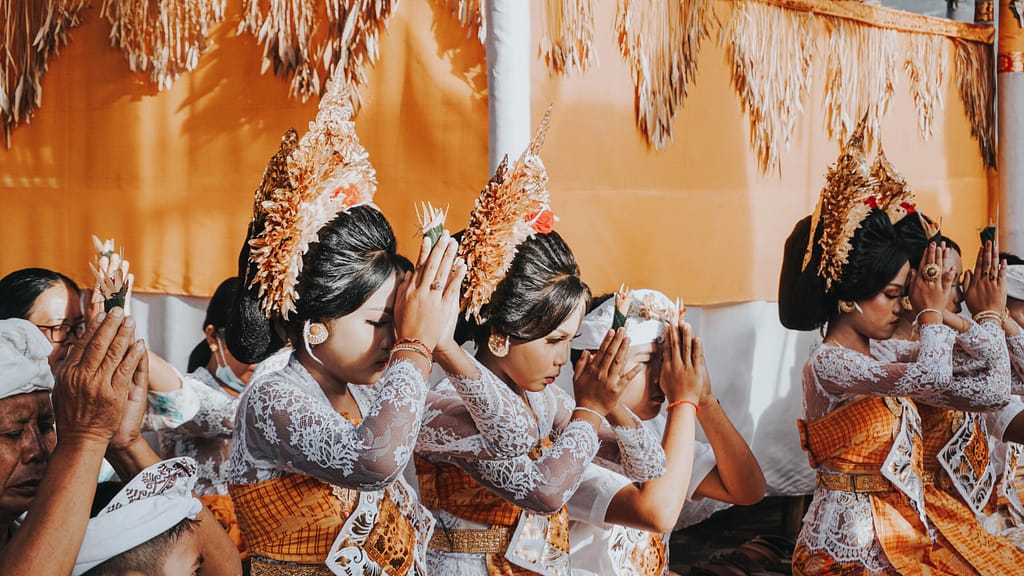
This component emphasizes connecting with the divine through rituals and ceremonies conducted at temples across Bali. The Balinese people dedicate their efforts to preserving their cultural heritage by actively participating in religious practices that honor their gods and ancestors.
Through these rituals, they seek blessings for themselves, their families, and their communities. By maintaining this harmony with Parhyangan, they believe that they ensure spiritual well-being for themselves and uphold Bali’s rich cultural traditions.
Pawongan revolves around achieving harmony with nature. Bali’s breathtaking landscapes are not only appreciated for their beauty but also deeply respected as crucial elements of Balinese life.
Traditional agriculture plays a significant role in Balinese culture, as it sustains both individuals’ livelihoods and the overall community well-being. The Balinese practice sustainable farming techniques passed down through generations to ensure a harmonious relationship between humans and nature.
Respect for nature is ingrained in daily life through rituals offering gratitude to deities who protect fields and water sources vital for agricultural activities. This component highlights how deeply rooted environmental consciousness is within Balinese customs.
Palemahan focuses on achieving harmony among people within society. It emphasizes fostering strong social connections based on mutual respect, supportiveness, and inclusivity among individuals within communities.
The strong sense of belonging to a larger network promotes cooperation rather than competition among community members—neighborhood gatherings known as “gotong-royong” where everyone collectively contributes to communal activities like cleaning the streets or maintaining local temples. This sense of unity and togetherness extends beyond immediate families, creating a solid foundation for a tightly knit society that cherishes cooperation and a shared responsibility for each other’s well-being.
of Tri Hita Karana intertwine harmoniously to shape Balinese society, enriching their lives in profound ways. By embracing Parhyangan, Pawongan, and Palemahan, the Balinese people showcase their resilience in preserving their cultural identity amidst the challenges of modernization and globalization.
While Bali has seen changes due to tourism and development, the core values embedded within Tri Hita Karana continue to guide the Balinese in finding balance between progress and cultural preservation. Through their commitment to harmony with nature, gods, and people, the Balinese have not only found happiness but also created a vibrant society that serves as an inspiration for others seeking a more harmonious way of living.
As Bali navigates the complexities of modernization, it is crucial to find ways to preserve and promote these timeless principles. By upholding the values of harmony with nature, deities, and fellow humans, the Balinese community can sustain their distinctive cultural heritage while forging a path towards a prosperous future.

Parhyangan: Harmony with the Gods
In Balinese culture, the concept of Parhyangan, or harmony with the Gods, holds a significant place. It reflects the deep-rooted beliefs and spirituality that are integral to the lives of Balinese people. The connection between humans and deities is considered crucial for maintaining balance and ensuring prosperity in all aspects of life.
Balinese people strongly believe that their daily rituals and offerings to the Gods play a vital role in maintaining this harmonious relationship. These rituals are performed with utmost devotion and precision, demonstrating their unwavering faith in the divine.
Whether it is a small offering at home or an elaborate temple ceremony, every act is conducted with reverence and sincerity. The impact of Parhyangan can be seen in various aspects of Bali’s cultural heritage.
The island is dotted with thousands of temples, each serving as a spiritual hub and a testament to the strong bond between humans and Gods. These sacred sites not only provide solace to individuals seeking spiritual guidance but also serve as community gathering points for religious ceremonies.
Contemporary Balinese culture still embraces Parhyangan wholeheartedly, even amidst modern challenges such as increasing tourism and urbanization. As Balinese society adapts to these changes, efforts are being made to preserve their traditions while embracing sustainable living practices.
This includes finding innovative ways to incorporate environmental stewardship into religious practices without compromising on their core beliefs. Overall, Parhyangan plays a crucial role in shaping the well-being of both individuals and society as a whole in Bali.
The strong emphasis on harmony with the Gods fosters an environment where spirituality thrives alongside cultural preservation. By upholding these traditions, Balinese people have created an enduring sense of happiness deeply rooted in their connection with the divine.
Pawongan: Harmony with Nature
In Balinese culture, the concept of Pawongan revolves around creating harmony with nature. The Balinese people have a deep connection to their environment and recognize the importance of maintaining a symbiotic relationship with it. The lush landscapes and vibrant biodiversity of Bali have not only served as a source of physical sustenance for the locals but also as a spiritual and cultural wellspring.
Balinese traditions are deeply rooted in their close bond with nature. The island’s sacred mountains, rivers, and forests are considered living entities that deserve respect and reverence.
This belief is reflected in various customs and rituals that aim to maintain environmental balance and promote sustainability. For instance, the practice of offering daily prayers at temples nestled amidst rice fields is not only an act of devotion but also a way to express gratitude for the fertility of the land.
The impact of Tri Hita Karana on Pawongan can be seen in the way Balinese society prioritizes environmental stewardship. Despite facing numerous challenges due to modernization and globalization, Bali has managed to preserve its natural beauty through sustainable practices.
Local communities engage in activities such as reforestation, waste management initiatives, and promoting eco-friendly tourism practices to protect their surroundings. Contemporary Balinese culture embraces this philosophy by weaving environmental consciousness into everyday life.
From using eco-friendly materials in traditional crafts to adopting renewable energy sources in hotels and resorts, efforts are being made to align modern practices with the principles of Pawongan. The resilience of Balinese people is evident in their adaptability to changes while staying true to their beliefs.
They understand that maintaining harmony with nature is integral not only for personal well-being but also for sustaining cultural heritage for future generations. By embodying Tri Hita Karana’s principles through environmental stewardship, Balinese society showcases its commitment towards preserving its unique identity amidst an evolving world.
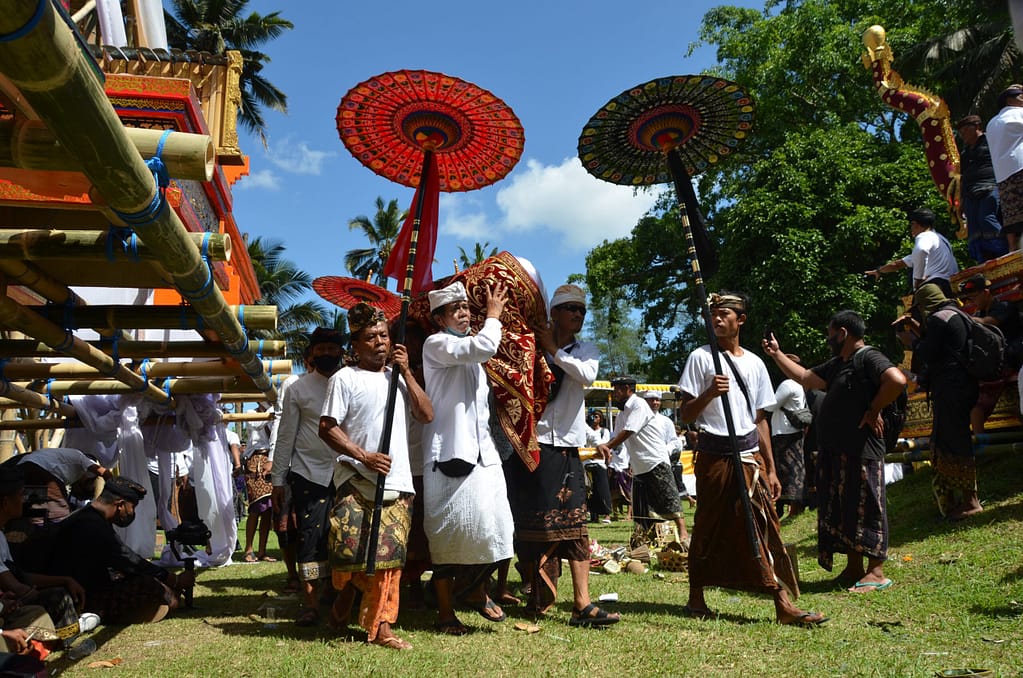
Palemahan: Harmony among People
In the context of Tri Hita Karana, Palemahan refers to the harmony among people in Balinese society. Balinese culture places a strong emphasis on community and fostering positive relationships among individuals.
The concept of Palemahan recognizes that human interactions and social cohesion are crucial for creating a harmonious and prosperous society. One of the key aspects of Palemahan is maintaining strong bonds within the Balinese community.
In Bali, people value their relationships with family, friends, and neighbors. The Balinese believe that nurturing these connections leads to increased happiness and overall well-being.
Consequently, they actively participate in communal activities such as religious ceremonies, traditional rituals, and cultural events that bring people together. Another important element of Palemahan is promoting cooperation and resolving conflicts amicably.
Balinese traditions emphasize the importance of open communication and finding peaceful solutions to disagreements. This approach stems from the belief that maintaining harmony among individuals contributes to a thriving community.
In situations where conflicts arise, mediation processes involving respected community members or spiritual leaders are often employed to ensure fair resolutions. The impact of Tri Hita Karana’s focus on Palemahan can be seen in various aspects of contemporary Balinese culture.
For instance, in the realm of tourism, which plays a significant role in Bali’s economy, there is an effort to preserve local customs while also providing visitors with an authentic experience. Locals strive to strike a delicate balance between catering to tourists’ needs while ensuring minimal disruption to their way of life.
Moreover, as challenges such as globalization continue to affect Bali’s cultural heritage, efforts are being made to sustain traditional practices while adapting them to modern circumstances. This includes initiatives aimed at preserving communal values through educational programs focused on teaching younger generations about Balinese beliefs and customs.
Overall, Palemahan underscores the significance that Balinese society places on fostering harmonious relationships among its people. By prioritizing interpersonal connections and seeking peaceful resolutions for conflicts, the Balinese uphold the principles of Tri Hita Karana in their everyday lives, contributing to the overall well-being and social fabric of their community.
Eco-friendly boost thanks to Tri Hita Karana
Through an understanding of Palemahan as part of this philosophy, efforts have been made to strike a balance between tourism development and environmental stewardship. For instance, many eco-friendly initiatives have been implemented on the island with an emphasis on preserving its natural beauty while meeting the demands of tourism.
Learn more about Kembali Becik, an initiative to greening Bali Tourism
Sustainable farming methods, such as organic agriculture and permaculture, are also gaining popularity among Balinese farmers who seek to maintain the harmony between Pawongan (Nature) and Palemahan (People). The philosophy of Tri Hita Karana has had a significant impact on Balinese society, particularly in promoting harmony among people through Palemahan.
Balinese traditions and customs embody this philosophy by fostering interconnectedness and cooperation within communities. As Bali navigates the challenges of globalization and tourism development, Tri Hita Karana continues to guide its people towards sustainable living practices that preserve their cultural heritage while ensuring a harmonious relationship with both nature and fellow human beings.
The Significance of Tri Hita Karana
Tri Hita Karana holds immense significance in Balinese culture, as it encompasses the core values and principles that guide the Balinese way of life. This unique philosophy serves as a compass for the people of Bali, ensuring harmony and balance between humans, nature, and the divine. The concept of Tri Hita Karana highlights the interconnectedness between different aspects of life.
It emphasizes the importance of maintaining a harmonious relationship with nature, recognizing that our existence depends on its well-being. In contemporary Balinese culture, this translates into a deep respect for the environment and a commitment to sustainable living practices.
The Balinese firmly believe that by preserving their natural surroundings and living in harmony with nature, they can uphold their cultural heritage while ensuring a prosperous future for generations to come. Furthermore, Tri Hita Karana fosters unity within the Balinese community.
The principle of Palemahan (harmony among people) emphasizes the significance of maintaining strong bonds between individuals and fostering a sense of togetherness. Through numerous customs, rituals, and festivals, such as Galungan or Nyepi, Balinese people come together to celebrate their shared values and beliefs.
These communal gatherings not only strengthen social ties but also reaffirm their commitment to Tri Hita Karana. However, in recent years Bali has faced challenges due to rapid modernization and globalization.
The influx of tourism has brought about significant changes in both physical landscapes and cultural practices. While tourism has undoubtedly played a pivotal role in boosting Bali’s economy, it has also posed threats to the delicate balance that Tri Hita Karana seeks to maintain.
As contemporary developments place strains on traditional agriculture practices or disrupt sacred sites revered by Parhyangan (the gods), it becomes imperative for the Balinese community to navigate these challenges while upholding their core values. In essence, Tri Hita Karana serves as an invaluable guiding principle for Balinese society—guiding them towards a sustainable and harmonious existence.
The resilience of the Balinese people in preserving their cultural heritage amidst the pressures of modernization and tourism is a testament to the deep-rooted significance of Tri Hita Karana in their lives. By embracing this philosophy, Balinese people continue to find strength in their spirituality, customs, and community, ensuring that their rich traditions endure for generations to come.
Challenges and Modernization
Balinese society has always been resilient in the face of external influences and challenges, and the philosophy of Tri Hita Karana plays a crucial role in maintaining the harmony within their culture. However, with modernization and globalization, Bali faces new challenges that impact its cultural preservation.
The rapid growth of tourism and the influx of foreign cultures have led to an increased pressure on Balinese traditions and customs. One of the main challenges is striking a balance between economic development and environmental sustainability.
As Bali strives to attract more tourists, it must also ensure that its natural resources are preserved for future generations. The concept of Pawongan, or harmony with nature, emphasizes the interconnectedness between humans and their environment.
Balinese people have long valued sustainable living practices such as organic farming and respecting natural ecosystems. However, with the rise of mass tourism, there is a growing concern over issues like waste management, water scarcity, and damage to fragile ecosystems.
Additionally, globalization has brought about changes in social dynamics and values within Balinese society. The younger generation is increasingly exposed to external influences through technology and media.
This exposure has led to a shift in priorities for some individuals who may prioritize materialism over traditional values rooted in Tri Hita Karana. Aspects of Balinese culture such as rituals, customs, and spirituality might be at risk of being overshadowed by global trends.
Nevertheless, Balinese cultural heritage remains strong due to their deep-rooted beliefs and traditions. Many local communities are actively involved in preserving their cultural identity by carrying out rituals associated with Parhyangan or Harmony with Gods regularly.
These rituals serve as reminders for individuals within society about their spiritual connection with higher powers that guide them towards harmonious living. Adapting Tri Hita Karana philosophy to modern challenges requires a delicate balance between embracing progress while keeping cultural integrity intact.
It involves finding innovative ways to incorporate sustainable practices into tourism development while also educating both locals and visitors about the importance of cultural heritage and environmental conservation. Through conscious efforts, Balinese society can continue to thrive while maintaining its unique identity and enriching the lives of its inhabitants.
Challenges posed by modernization and globalization are inevitable for any culture, including Bali. However, the philosophy of Tri Hita Karana provides a strong foundation for Balinese people to navigate these challenges without compromising their core values.
By embracing sustainable practices and actively preserving their cultural heritage, Balinese society can ensure the longevity of their traditions while adapting to the changing world around them. The continued success of Tri Hita Karana lies in the commitment of the Balinese people to uphold their rich cultural legacy and find harmony between progress and tradition.
Learn more at The Ministry for Religion’s website



